Introduction
What Flowers Do Rabbits Not Eat: In the tapestry of gardens and landscapes, the presence of flowers adds a vibrant and enchanting touch. However, the delicate balance between nature’s beauty and the foraging instincts of rabbits can sometimes lead to challenges for garden enthusiasts. Understanding which flowers rabbits tend to avoid can be a valuable tool in maintaining the splendor of our outdoor spaces. Join us as we explore the world of flowers that rabbits do not find appetizing, allowing both flora and fauna to coexist harmoniously.
In the realm of blossoms and greenery, a delicate dance between the beauty of flowers and the voracious appetites of rabbits unfolds. For garden enthusiasts and nature admirers, finding a balance between cultivating stunning floral displays and deterring the nibbling tendencies of rabbits can be a rewarding challenge.
Delving into the world of flowers that rabbits eat tend to avoid offers a glimpse into the intricate ways in which both the natural world and human cultivation intersect. Let’s embark on a journey through the realm of flowers that stand strong against the browsing habits of these furry foragers, enhancing the allure of gardens while maintaining the harmony of ecosystems.
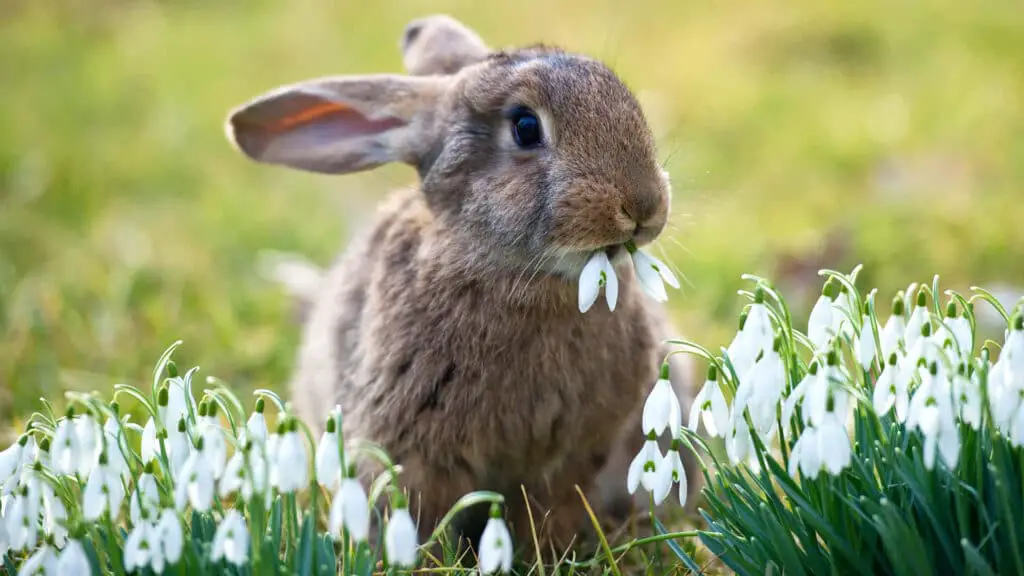
Can rabbits eat marigold flowers?
Marigolds are entirely edible and non-toxic to humans, and rabbits do enjoy some of them. They are especially fond of the leaves. Rabbits with plenty of grass and leaves to eat probably won’t do much damage to marigolds.
The Nutritional Needs of Rabbits
Before exploring whether rabbits can consume marigold flowers, it’s essential to understand the dietary requirements of these furry companions. Rabbits need a diet that is high in fiber, primarily derived from hay, grasses, and leafy greens. A proper diet supports their dental health, aids in digestion, and prevents obesity. Fresh water should always be available to keep rabbits hydrated.
Marigold Flowers: Are They Safe for Rabbits?
Marigold flowers (Tagetes species) are commonly grown for their ornamental value, but they are also believed to have some potential health benefits due to their natural compounds, such as flavonoids and antioxidants. However, when it comes to feeding rabbits, caution is warranted.
While marigold flowers are not considered toxic to rabbits, they are not a staple food for them either. It’s important to remember that rabbits have sensitive digestive systems, and introducing new foods can sometimes lead to digestive upset or even potentially harmful reactions.
Moderation is Key
If you’re considering offering marigold flowers to your rabbits, it’s crucial to do so in moderation. Treats like marigold flowers should never constitute more than 10% of a rabbit’s diet. The majority of their diet should consist of hay, fresh greens, and high-fiber pellets, which provide the essential nutrients rabbits need for optimal health.
Benefits of Marigold Flowers
Some rabbit owners may be interested in including marigold flowers in their pets’ diet due to the potential health benefits associated with the flower’s compounds. Marigold flowers contain carotenoids, which are natural pigments that have antioxidant properties. These antioxidants may contribute to overall health and wellness by combating oxidative stress.
However, while marigold flowers do offer potential benefits, it’s essential to consult a veterinarian before introducing any new food into a rabbit’s diet. A vet can provide personalized guidance based on the specific needs of your rabbit.
Do rabbits eat any flowers?
Rabbits prefer young, tender shoots and are particularly fond of lettuce, beans, and broccoli. Flowers they like to nibble include gazanias, marigolds, pansies, and petunias. Young rabbits are curious and tend to sample many plants, even ones reputed to be rabbit-resistant.
Safe Flowers for Rabbits
Dandelions: Dandelion leaves and flowers are often relished by rabbits. These common backyard plants are a safe and nutritious option. The flowers are high in fiber and contain vitamins A and C.
Calendula: Also known as pot marigold, calendula flowers are safe for rabbits to eat. They contain antioxidants and can be given in moderation.
Chamomile: Chamomile flowers can be provided as an occasional treat. They are known for their calming properties and can be beneficial for a rabbit’s digestive system.
Roses: Petals from roses are generally safe for rabbits. However, make sure to remove any thorns and avoid using chemically treated flowers.
Nasturtium: Nasturtium flowers are edible and can add a splash of color to a rabbit’s diet. They’re rich in vitamin C and provide a peppery flavor.
Hibiscus: Hibiscus flowers are safe for rabbits and can be given in moderation. They are high in antioxidants and provide a tart taste that some rabbits enjoy.
Lavender: Lavender flowers can be offered sparingly. They are known for their soothing aroma and potential relaxation benefits.
What smells do rabbits hate?
Additionally, the strong odors of blood meal, garlic, onions, mint, thyme, sage, rosemary, lavender, daffodils, and marigolds act as natural repellents for rabbits. Planting these species in our gardens or using sprays that contain their scents can help protect our plants from rabbit damage.
Scents That Repel Rabbits
Strong Spices: Rabbits have a sensitive olfactory system, and strong, pungent spices like garlic, onion, and chili can be off-putting to them. Sprinkling these spices around your garden or the areas you want to protect can discourage rabbits from venturing too close.
Mint: While humans often find the scent of mint refreshing, rabbits tend to dislike it. Planting mint around your garden or placing mint-scented items strategically can deter rabbits from exploring those areas.
Citrus: The sharp and tangy scent of citrus fruits, such as oranges, lemons, and grapefruits, can be unappealing to rabbits. Using citrus peels or citrus-scented sprays can help create a rabbit-free zone.
Ammonia: Ammonia-based scents, such as those found in predator urine or ammonia-soaked rags, can simulate the presence of a predator in the area. Rabbits are naturally cautious animals, and the scent of potential danger can encourage them to stay away.
Vinegar: The strong odor of vinegar can be used to deter rabbits from certain areas. Mix vinegar with water and spray it around your garden or the spots rabbits frequently visit to discourage their presence.
Spicy Plants: Some plants with naturally strong scents, such as marigolds, geraniums, and lavender, can act as natural repellents for rabbits. Planting these around your garden can help keep rabbits at bay.
Strong Herbs: Herbs like rosemary, thyme, and oregano emit fragrances that rabbits may find displeasing. Introducing these herbs to your garden or placing sachets of dried herbs can help deter rabbits.
Do rabbits eat hibiscus?
Hibiscus is reputed to help support the immune system, plus it’s high in natural vitamin C and rich in antioxidants too. Ideal for Rabbits, Guinea Pigs and other small animals.
Rabbit Diet Basics
Rabbits are herbivores, which means their diet is centered around plant-based foods. Their digestive systems are adept at processing fibrous vegetation like hay, grasses, and leafy greens. While these components form the foundation of a rabbit’s diet, they can also enjoy occasional treats in the form of safe fruits, vegetables, and herbs.
Hibiscus and Rabbits
Hibiscus flowers are known for their large, colorful blossoms that captivate human attention. When it comes to rabbits, the relationship with hibiscus is somewhat mixed. While rabbits can indeed eat hibiscus flowers, there are important points to consider:
Moderation: Like any treat, hibiscus should be offered to rabbits in moderation. A small amount of hibiscus flowers, either fresh or dried, can be given as an occasional treat rather than a staple food.
Nutritional Benefits: Hibiscus flowers are not just visually appealing; they also offer nutritional benefits. These flowers contain antioxidants and vitamin C, which can contribute to a rabbit’s overall health and well-being.
Tart Flavor: The flavor of hibiscus flowers is slightly tart, which might not be favored by all rabbits. Some rabbits might enjoy the taste, while others might be indifferent or even averse to it.
Safety Precautions: When offering hibiscus to rabbits, it’s crucial to ensure that the flowers are free from pesticides, herbicides, or any other harmful chemicals. Thoroughly wash the flowers before giving them to your rabbit.
Variety and Enrichment: Introducing different types of safe flowers and herbs, including hibiscus, can contribute to a rabbit’s mental stimulation and diet diversity. This can be particularly important if you’re seeking to provide a well-rounded diet to your pet.
Do rabbits like marigold?
Answer: Marigolds do not repel rabbits, deer, or other animals. In fact, rabbits occasionally browse heavily on marigolds.
Rabbit Diet and Preferences
Rabbits are herbivores, which means their diet consists primarily of plant material. A well-balanced rabbit diet includes hay, fresh greens, and certain vegetables. While these staples are essential for their health, rabbits can also enjoy occasional treats, such as safe flowers and herbs, which provide variety and mental enrichment.
Marigold Appeal for Rabbits
Marigold flowers, with their vivid hues and aromatic scent, might catch the attention of rabbits during their explorations. However, the appeal of marigolds to rabbits can be influenced by several factors:
Flavor: Marigolds possess a distinct flavor that might not be universally favored by rabbits. Some rabbits might find the taste appealing, while others might show indifference or even reluctance.
Aroma: The strong scent of marigolds can be overpowering for rabbits with their sensitive olfactory senses. While rabbits are known to investigate their surroundings through scent, the intensity of marigold fragrance might not necessarily translate into a preference for consumption.
Nutritional Value: Marigold flowers do contain natural compounds like flavonoids and antioxidants, which can offer potential health benefits. However, rabbits typically rely on nutrient-rich hay, fresh greens, and safe vegetables to fulfill their nutritional requirements.
Individual Variability: Just like humans have diverse preferences for food, rabbits also exhibit individual variability in their tastes. Some rabbits might show a greater interest in marigolds, while others might not display any inclination.
Safety Considerations
While marigold flowers are generally safe for rabbits to consume, it’s crucial to exercise caution when introducing any new food into their diet. Moderation is key, as treats like marigolds should not exceed 10% of a rabbit’s diet. Additionally, ensure that the marigold flowers are free from pesticides or chemicals before offering them to your rabbit.
What natural remedy keeps rabbits away?
These include plants with prickly leaves, such as holly and rosemary, and plants with strong scents, such as lavender and mint. By planting these kinds of plants around the garden’s perimeter, you can create a natural barrier that will keep rabbits out.
Strong Scents
Rabbits have a keen sense of smell and are sensitive to certain strong scents. Using natural ingredients with potent odors can discourage them from visiting your garden.
Garlic and Onions: The pungent aromas of garlic and onions can be unappealing to rabbits. Placing slices or cloves of garlic or onion around your garden borders can help deter rabbits.
Spices and Herbs: Strong spices like cayenne pepper, red pepper flakes, and dried herbs like thyme, rosemary, and mint can create an inhospitable scent barrier for rabbits.
Plants Rabbits Dislike
Just as some scents are repellent to rabbits, there are certain plants that rabbits tend to avoid due to their natural characteristics.
Lavender: The fragrance of lavender is disliked by rabbits, making it a great addition to your garden for both its lovely scent and its potential rabbit-repellent properties.
Marigolds: While the previous sections discussed rabbits’ preferences for marigolds, the pungent scent of marigold flowers can also deter rabbits if used strategically.
Physical Barriers
Creating barriers that rabbits find difficult to cross can effectively keep them away from your plants.
Fencing: Installing a rabbit-proof fence around your garden can be an effective way to prevent rabbits from entering. Make sure the fence is buried slightly underground to prevent digging.
Netting: Placing bird netting or chicken wire over vulnerable plants can prevent rabbits from reaching and damaging them.
Predator Scents
Rabbits are prey animals and are naturally wary of potential predators. Using predator scents can trigger their survival instincts.
Predator Urine: Products containing predator urine, such as that of foxes or coyotes, can simulate the presence of a predator and deter rabbits from the area.
Natural Repellent Sprays:
Various commercially available natural repellent sprays are formulated to deter rabbits. These products often combine strong scents and taste aversions to discourage rabbits from nibbling on plants.
Are roses safe for rabbits?
Roses. Rose bushes are safe for rabbits to chew on. This includes the leaves, twigs, branches and flowers. Rose petals can actually be a very yummy treat for many rabbits.
Rabbit Diet and Plant Consumption
Rabbits are herbivores with a diet primarily composed of plant materials. While their mainstay consists of hay, fresh greens, and vegetables, they might also be drawn to certain flowers. However, not all plants are safe for rabbits to eat, and caution is necessary when introducing new elements to their diet.
Consulting a Veterinarian
Before introducing any new food, including roses, into a rabbit’s diet, it’s recommended to consult a veterinarian. A vet can provide personalized guidance based on your rabbit’s specific health needs and dietary requirements. They can help ensure that any treats you provide are appropriate and safe for your furry companion.
Can rabbits eat rose?
Roses are good for rabbits, and they are a natural part of a foraging rabbit’s diet. Wild rabbits generally live on grass, but they will happily eat roses when they come across them, and this includes the stems, the leaves, and the flowers if they can reach them.
Rabbit Diet and Floral Consumption
Rabbits are herbivores, meaning their diet consists primarily of plant materials. Their digestive systems are designed to process fibrous vegetation, including hay, grasses, and leafy greens. While these components form the foundation of a rabbit’s diet, they can also nibble on certain flowers as treats.
Edibility of Roses for Rabbits
When it comes to roses, the petals of many rose varieties are indeed safe for rabbits to consume, with some considerations:
Non-Toxicity: Roses (Rosa species) are generally non-toxic to rabbits. This means that, in moderation, consuming rose petals is unlikely to cause immediate harm to rabbits.
Petals Only: When offering roses to rabbits, ensure that you provide only the petals. Remove any thorns, leaves, and stems, as these parts can be difficult for rabbits to digest and might cause digestive upset.
Pesticide-Free: Always make sure that the roses you offer to rabbits are free from pesticides, herbicides, and any other chemicals. Organic roses or those grown without chemical treatments are the safest option.
Moderation: Like any treat, roses should be given to rabbits in moderation. While the petals are safe for rabbits to nibble on, they should not replace the primary components of their diet, such as hay, fresh greens, and safe vegetables.
Variety: Introducing a variety of safe flowers and herbs, including rose petals, can contribute to a rabbit’s mental stimulation and diet diversity.
Consulting a Veterinarian
Before introducing any new food, including roses, into a rabbit’s diet, it’s always a good idea to consult a veterinarian. A vet can provide personalized advice based on your rabbit’s specific health needs and dietary requirements. They can ensure that any treats you offer are appropriate and safe for your furry friend.
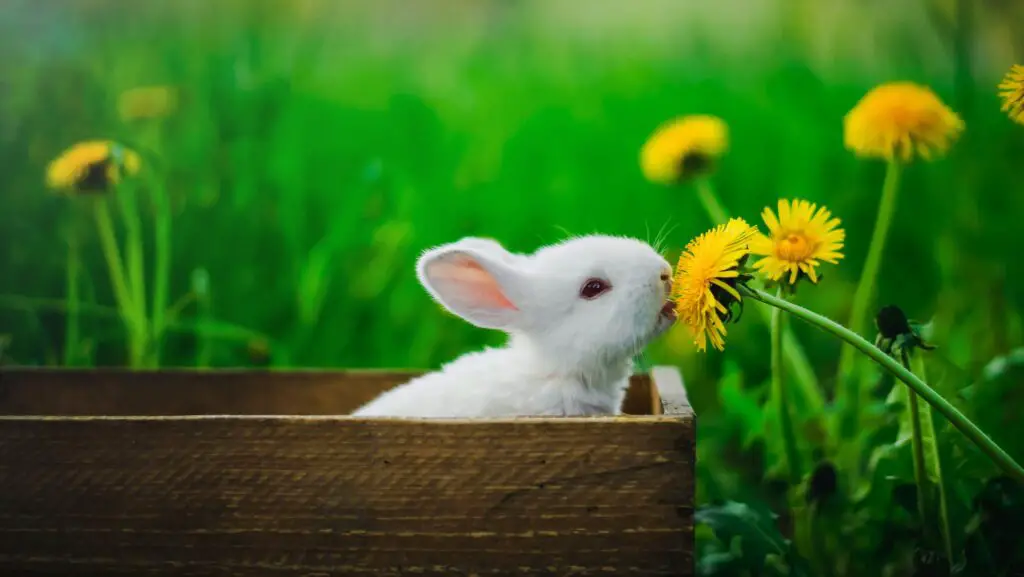
Conclusion
As we conclude our exploration into the realm of flowers that rabbits tend to avoid, we are reminded of the intricate balance that exists between the natural world and human intervention. By identifying and planting flowers that rabbits are less likely to consume, we can create spaces where the splendor of blossoms coexists with the diverse inhabitants of our environments.
Through this knowledge, gardeners and nature enthusiasts alike can cultivate thriving gardens that stand as testaments to the coexistence of flora and fauna. As we appreciate the beauty of these unappetizing flowers, we embrace a harmonious approach that respects the foraging instincts of rabbits while celebrating the artistry of nature’s palette. In this delicate dance, both gardens and the creatures that inhabit them contribute to the vibrant tapestry of life on our planet.
As you embark on the journey of cultivating a garden that rabbits are less likely to devour, remember that experimentation and observation are key. By selecting a diverse array of rabbit-resistant flowers, embracing natural deterrents, and considering the unique dynamics of your garden, you can create a space that embodies the harmony between human cultivation and the instinctive behaviors of wildlife. In doing so, you contribute to the vitality of both your garden and the larger ecosystem, fostering a haven of beauty that thrives despite the presence of these furry foragers.

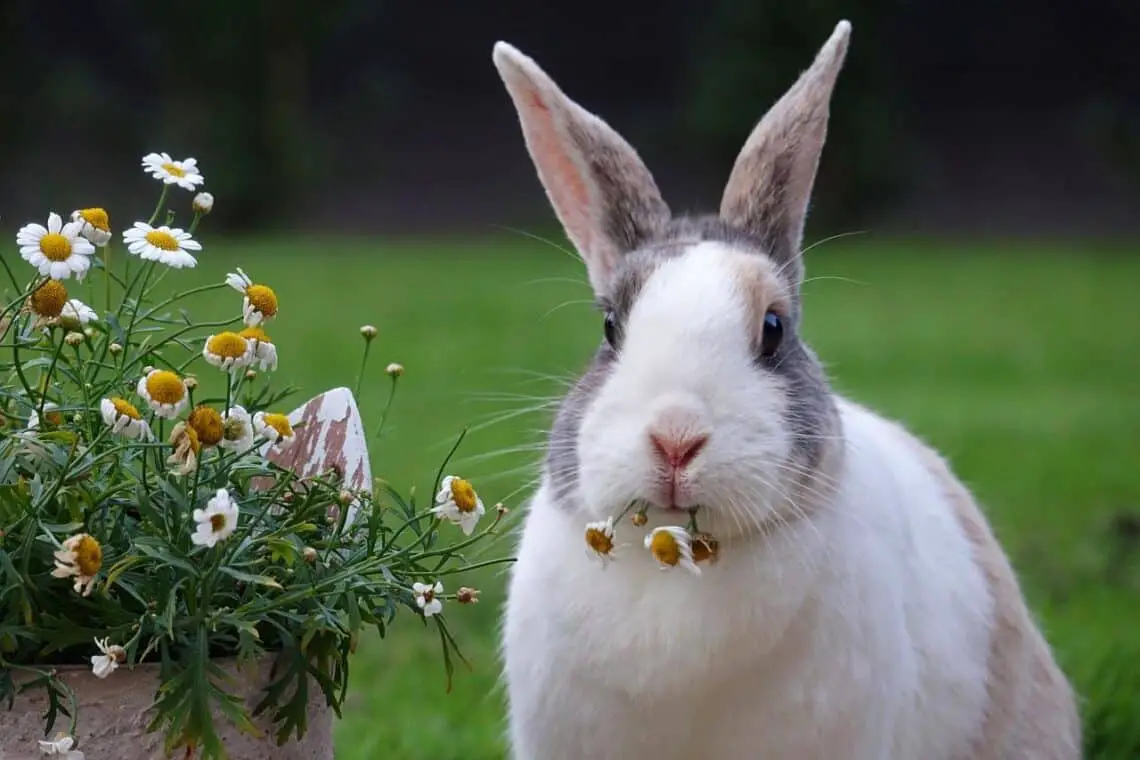
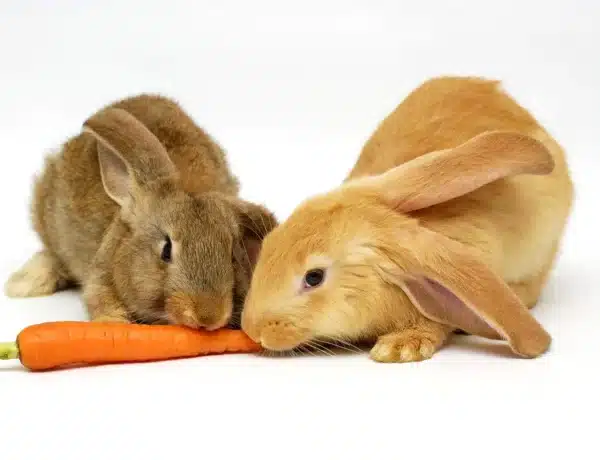
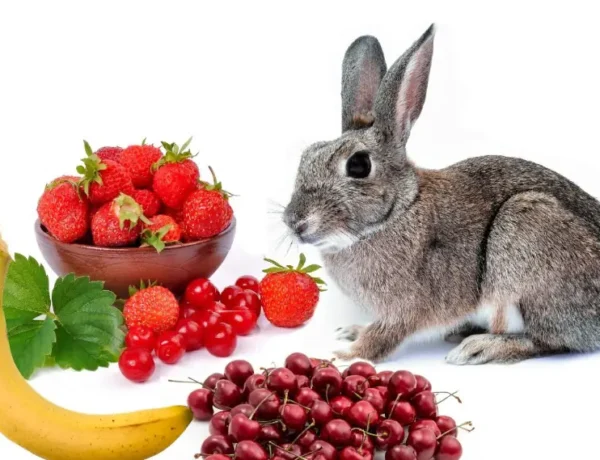
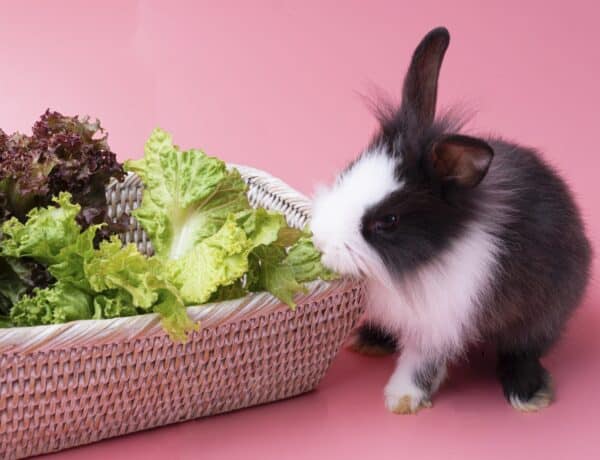
No Comments